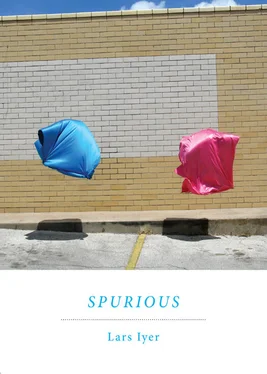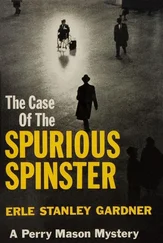Strasbourg. Isn’t this where Levinas and Blanchot met for the first time? We remember the photo of them both from Malka’s biography: two students, the one tall and thin, the other cheerful and plump; one dishevelled in a double breasted suit and the other dressed like a dandy with a silver-knobbed cane …
‘Compare our friendship’, says W., ‘to that of Levinas and Blanchot’. Of their correspondence, only a handful of letters survive. Of ours, which take the form of obscenities and drawings of cocks exchanged on Microsoft Messenger, everything survives, though it shouldn’t. Of their near daily exchanges, nothing is known; of our friendship, everything is known, since I, like an idiot, put it all on the internet.
Blanchot was above all discreet, but I am indiscretion itself; Levinas barely spoke of his friend, but I am gossip and idle talk itself. Whereas both men were immensely modest, and weighed everything they said with great consideration, I am immensely im modest, and weigh nothing I say or write with any consideration at all. Whereas both wrote with great care and forethought, I write with neither care nor forethought, being seemingly proud of my immense idiocy.
Suddenly, we are weary. Old Europe is immeasurably greater than us, we know that. Who hasn’t walked in these streets? What hasn’t happened here? European history flows through the city like a great river. And what of us, carried along like two turds in that river?
We sit down in a bistro and drink Alsatian wine from tumblers. W. speaks his bad French softly, and we dream, for a moment, that we are real European intellectuals.
In they come, depressive weather systems from the Atlantic, reaching W. first (in the southwest of England) before reaching me (in the northeast of England), bringing grey days with constant rain. The Westerlies are destroying us, we agree. When will it end?
This summer, W. tells me on the phone, he’s become even more stupid than usual. He’s reading Cohen in German on the infinitesimal calculus. But he barely understands German! He barely understands maths! The English mathematical terms he finds in his dictionary to translate the German ones are just as opaque. What does it all mean? W. wonders.
I’ve been thinking only of administration, I tell him. It’s my only concern, I tell him. It’s taken me over. It’s all to do with my periods of unemployment, W. thinks. It’s what I most fear, unemployment. — ‘You could only have become an administrator’, W. says. ‘You developed the soul for it. The fear’.
My administrative zeal frightens him, W. admits. It’s a sign of complete desperation. In the end, it’s what will always compromise my real work, my reading and writing. — ‘You always have administration to fall back on’, W. says. ‘You never really experience your failure’.
With neither a fear of unemployment nor a fearful skill as an administrator, W. is alone with his failure, he says. It’s terrible — there’s no alibi, he can’t blame it on anyone. Whose fault is it but his? W. laments his laziness, his indolence. He had every advantage and now — what has he accomplished? What has he done?
I can have no understanding of his sense of failure, W. tells me. None. It’s beyond me. — ‘You’re like the dog that licks the hand of its master. You’ll be licking their hand even as they beat you, and making little whiny noises. You’re good at that, aren’t you — making whiny noises?’
He sees me in his mind’s eye, W. says. I pause from my ceaseless administrative work, look up for a moment … Of what am I thinking? W. says. What’s struck me? But he knows I’m only full of administrative anxieties, and my pause is only a slackening of the same relentless movement.
And what of him, when he looks up from his labours? What does he see? Of what is he dreaming? Of thought, W. says. Of a single thought, from which something might begin. Of a single thought that might justify his existence.
Absurdly grateful —that’s the phrase that sums it up, W. says. Take my life, the misery of my life — take what little I’ve achieved, what little chance I had, and what little I’ve accomplished despite that lack of opportunity — and still, I’m absurdly grateful .
I’m grateful for my flat, for the squalor in which I live. I’m grateful for the damp that streams down the walls and the rats that crawl over one another in my back yard. And with my solitude, my misery, the fact I speak to no one, the fact that no one speaks to me — it’s exactly the same: I’m absurdly grateful .
‘You’re surprised even to have got this far’, W. says, that’s what horrifies him. This far — but how far have I got? If anything, I’ve gone backwards; I’ve ended up with less than I had before. I’ve subtracted something from the world. Haven’t I taken from W.? Haven’t I deprived him of some important part of his own ability?
I’ll thank them as they kick me in the teeth, W. says. But I’ll thank them, too, when they kick W. in the teeth. A friend of mine deserves nothing else, that’s how I think of it, isn’t it? Down we fall, further and yet further. Down — another step, and down again — W. didn’t know there were any more steps — and thanking them all the way …
Of course, I should take my life immediately, that would be the honourable thing, W. says. I should climb the footstool to the noose … But it would already be too late, that’s the problem, W. says. The sin has already been committed. The sin against existence, against the whole order of existing things.
That I should have lived at all is a disgrace, W. says. It’s the disgrace, the disgrace of disgraces. But about the fact that I do exist, nothing can be done.
He could stab me. In fact he’s offered several times. Sometimes I’ve asked him to. Sometimes I’ve proposed a double suicide: he stabbing me, and I him. But then, of course, it would do nothing; it’s already too late. There’s only the fact that I exist, and the fact that his, W.’s, existence has already been utterly contaminated by my existence.
A double suicide — is that the answer? But who would stab who first? Who would string up the nooses? And could W. be sure, really sure, that I was really prepared to die as he was? Or even that he would be prepared to die as I apparently was?
Death seems as far away from us as ever. When will it end? W. wonders. Isn’t the end overdue? Shouldn’t it have come already? When the apocalypse comes, it will be a relief, W. says. We’ll close our eyes at last. There’ll be no more need to apologise, or to account for ourselves. No guilt …
It’s our fault, it’s all our fault, we should at least admit that, W. says. It’s our fault and particularly mine. My fault, W. says, because my existence couldn’t help but contaminate his. And his fault, somewhat at least, because he continues to allow his existence to be contaminated by mine.
But what can we do about it? To whom should we apologise? Each other? I should certainly apologise to him, W. says. I owe him a lifetime of apologies. But doesn’t he owe me an apology, too? Doesn’t he, by his continual presence in my life, perpetuate the disaster?
He gives me license, W. says. He gives me encouragement — but why? In the end, perhaps I’m only a figment of his imagination, a kind of nightmare, he says. Can’t you see I’m burning? I ask him in his dream. But in the end, he’s burning, W. says. He’s the one who set himself on fire.
Every summer, he begins work with great ambition, W. says. He’ll read more than ever, and more deeply! He’ll write as he’s never written before! But by the end of the summer, it’s all gone wrong. Why does he never learn? W. muses. Why does nothing change?
Читать дальше












